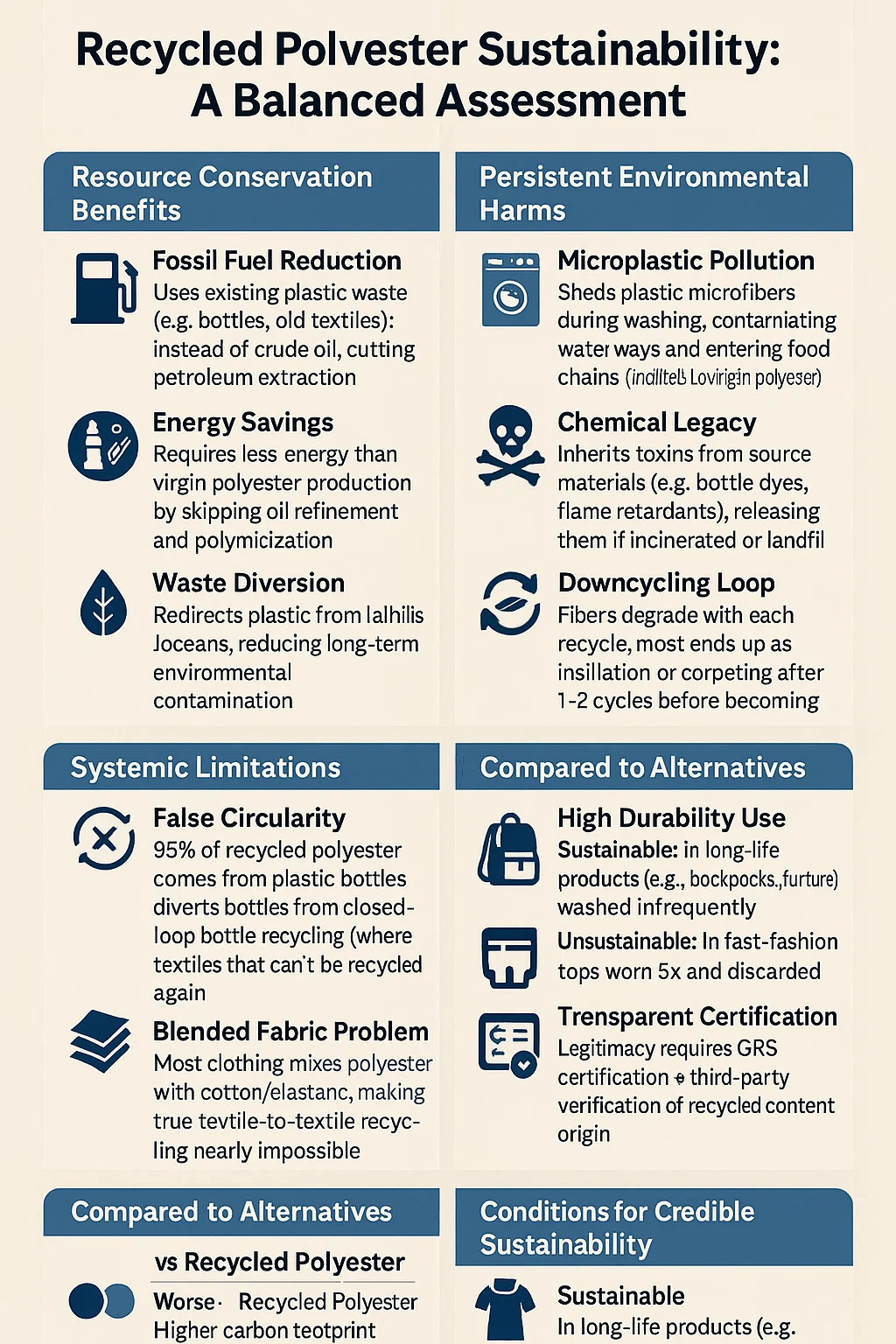Search by posts
Calendar
Industry News
 By Admin
By Admin
How sustainable is recycled polyester?
Recycled Polyester Sustainability: A Balanced Assessment
1. Resource Conservation Benefits
Fossil Fuel Reduction Uses existing plastic waste (e.g., bottles, old textiles) instead of crude oil, cutting petroleum extraction.
Energy Savings Requires less energy than virgin polyester production by skipping oil refinement and polymerization.
Waste Diversion Redirects plastic from landfills/oceans, reducing long-term environmental contamination.
2. Persistent Environmental Harms
Microplastic Pollution Sheds plastic microfibers during washing, contaminating waterways and entering food chains (identical to virgin polyester).
Chemical Legacy Inherits toxins from source materials (e.g., bottle dyes, flame retardants), releasing them if incinerated or landfilled.
Downcycling Loop Fibers degrade with each recycle; most ends up as insulation or carpeting after 1-2 cycles before becoming unrecyclable waste.
3. Systemic Limitations
False Circularity
95% of recycled polyester comes from plastic bottles, not old clothes. Diverts bottles from closed-loop bottle recycling (where they could become new bottles) into textiles that can’t be recycled again.
Blended Fabric Problem Most clothing mixes polyester with cotton/elastane, making true textile-to-textile recycling nearly impossible.
Infrastructure Gaps Few facilities globally can process textile waste at scale; recycling rates remain below 15%.
4. Compared to Alternatives
| Material | vs. Recycled Polyester |
| Virgin Polyester | Worse: Higher carbon footprint + new plastic generation |
| Organic Cotton | Better: Biodegrades, no microplastics – but water-intensive |
| Tencel/Lyocell | Better: Plant-based + circular production – but cost-prohibitive |
5. Conditions for Credible Sustainability
High Durability Use Sustainable: In long-life products (e.g., backpacks, furniture) washed infrequently. Unsustainable: In fast-fashion tops worn 5x and discarded.
Transparent Certification Legitimacy requires GRS certification + third-party verification of recycled content origin.
Microfiber Mitigation Brands must integrate filters in washing machines/garments to capture shed microplastics.


